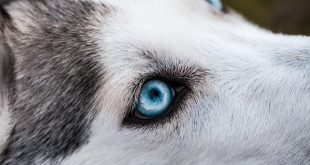Everyone, regardless of their age, at some point in life, wants a pet for themselves in order to bring certain changes in their lives. Having an animal companion is beneficial for the mental wellbeing of people.
But sometimes, due to extensive attachment to their pets, people go overboard with feeding them, which ultimately results in their pets gaining unnecessary weight.
Overweight dogs do not live that long and are more prone to illness since being overweight creates lasting effects on their physical and mental wellbeing. That is why getting in shape and losing weight will ultimately add years to a dog’s life.
In this article, we’ll be discussing some dietary tips and tricks to help your cuddly canine shed a few pounds and live a longer and healthier life.
Effective Diet for Your Dog
Dogs, too, need their daily nutrition just like all living breathing beings. It’s the core energy that will help them grow, develop their body, and stay active throughout their lifespan. A caregiver can feed dogs in various ways and choose from hundreds of diets.
The combinations and amounts of these diets depend largely on the dog’s age, weight, physical & mental condition, and lifestyle. That is why people often go through a tough time slimming down their super-sized dogs, choosing the ideal dog food to keep them fit, while reducing their risk of developing diseases.
Weight Loss Techniques
Gaining as much as five pounds above the ideal body weight can put your dog under serious medical conditions. Once they’re overweight, their bodywork slows down, and they become less active.
They become prone to major kidney and heart diseases, rheumatoid arthritis, high blood pressure, debilitating diabetes, and many forms of cancer.
Although it might seem hard at first to trim excess weight from your cuddly companion, it is actually a very doable process. All you need is a variation of strict weight loss techniques and dietary plans.
Count Calories
People often miscalculate exactly what amount of calories to feed their dogs and end up feeding more than what they normally need. Sometimes, they have a hard time trusting the container or the bag and end up feeding 20% to 30% more.
A good strategy to follow here is dividing your pet’s weight by 2.2, multiplying the result with 30, and adding 70 to the figure. The ultimate result will show you exactly how many calories your dog needs. You can also take assistance from your veterinarian in this criteria.
Using a reducing diet suggested by your veterinarian can also be beneficial on many levels. The calorie amount will be given on the label of the said diet, and in case you want to choose an alternate source of food, a member of the veterinary healthcare team can help you out.
Control Weight
Veterinarians mostly suggest feeding dogs calorie-controlled healthy food on a daily basis to achieve their targeted & ideal weight. The best way to start controlling the overall weight of your dog is by reducing the daily food intake and feeding him/her three or four times a day, but don’t go overboard.
The diet is more likely to fail if the normal intake of food is reduced, and the “calorie-control” foods are not used. For many dogs, feeding a specific diet food in different parts of the day can be very beneficial.
But keep in mind that feeding too much will result in no weight loss, and feeding too little will cause malnutrition. For most dogs, the key to weight loss is a dedicated caregiver. Dogs don’t realize that the excess weight is causing them health issues, but we do, so it is our job to help them stay fit.
Measure Meals
Measuring tools like cups and scales are very powerful and effective in fighting against the excess weight of your dog. Sometimes, people fill the entire bowl with food to feed their dogs without proper prior knowledge. In some instances, they do this the entire day.
This eventually impacts the overall health and wellness of dogs and puts them in dire medical conditions. That is why, after calculating calories, it is ideal for determining exactly what amount of food to be fed each meal.
Feeding an overweight dog a reduced-calorie, high fiber, vitamins and minerals enriched diet can help maintain the health of the skin and coat during the dietary period.
Limit Treats or Provide Healthier Treats
Although it can get very hard to look past their cute attire and adorable gestures, it is very necessary to control the amount of treats you are giving them. Otherwise, it’ll only increase their weight beyond their natural state and cause health issues in the near future.
Opting for low-calorie, low-carb, and no sugar treats will provide longer-lasting health benefits. One way of limiting excessive calories is making sure you are giving dogs treats for situations where they have rightfully earned them.
Maintaining a certain number of treats and keeping count of additional calories can help you better understand the overall calorie intake of your dog.
Increase Exercise
Increasing the frequency and duration of exercise can help dogs burn more calories, reduce appetite, change body composition, and increase metabolism. Playing outdoor games with dogs can be very effective to get them moving and boost their activity.
It will also strengthen the bond between you and your dog. Encouraging self play with toys can engage your dog’s senses on a wider scale; it’ll keep him/her entertained for hours and help burn calories in the long run.
Maintain Overall Health
To feed more often by reducing the portion size can become crucial when dealing with obesity amongst dogs and other pet animals. The key factor in maintaining their overall health is deciding to feed them the right amount of food at the right time.
Another factor to consider here is hydration. Dogs get dehydrated and often ask for food when they’re actually just thirsty. If they have proper access to clean water, they’ll more likely keep their hunger whines under control.
Also, feeding baby carrots, green beans, broccoli, sliced apples, celery, cucumbers, bananas, and ice cubes as an alternative to artificial sugary treats will have positive health benefits in the future. Sometimes cutting down carbs and using smart supplements can also help your dog stay fit and active.
Conclusion
Research says that people who have a dog tend to be more relaxed and lead a healthier life than people who don’t. Dogs provide rich and unconditional love to support their caregiver in every possible way.
If we keep feeding them healthy, nutritious food and treats within a contained amount and make them work out on a regular basis, then surely, they’ll be fit and have lower chances of developing serious diseases.
One other thing to keep in mind is that all dogs are different, so if your dog isn’t losing weight even after following the diet thoroughly, there’s a possibility that he/she burns calories slowly. There are a number of ways to keep your dog healthy since you know your dog best, you know which of these factors to use when dealing with the excess fat of your cuddly companion.
 World inside pictures Collect and share the best ideas that make our life easier
World inside pictures Collect and share the best ideas that make our life easier








